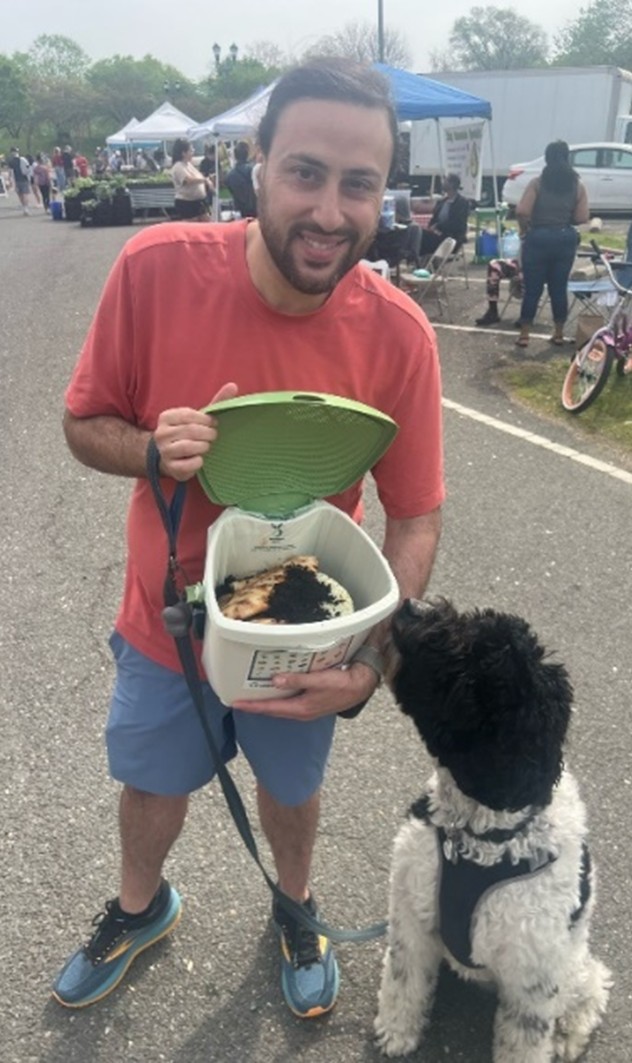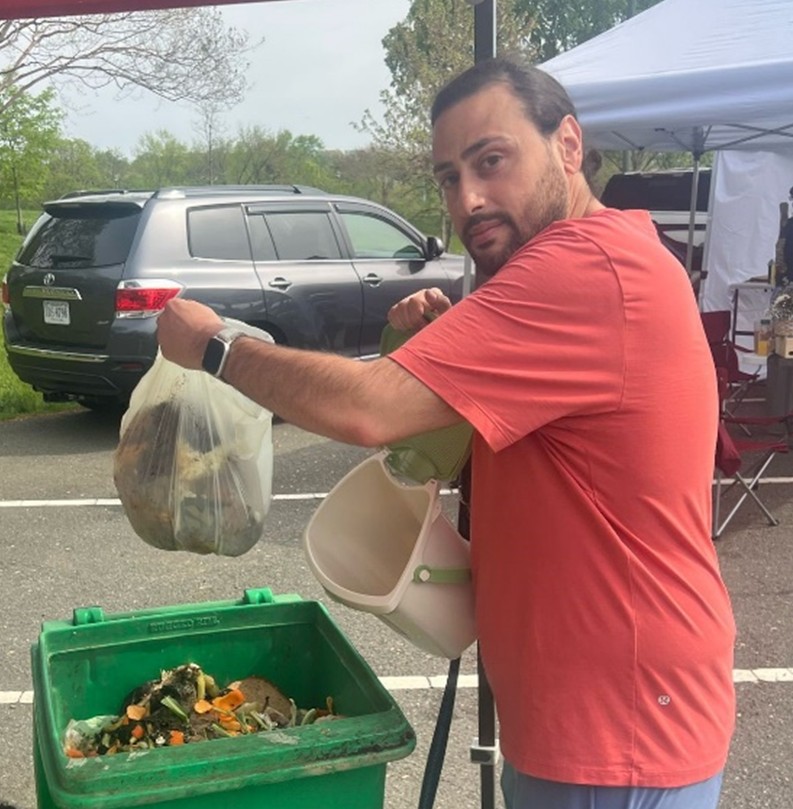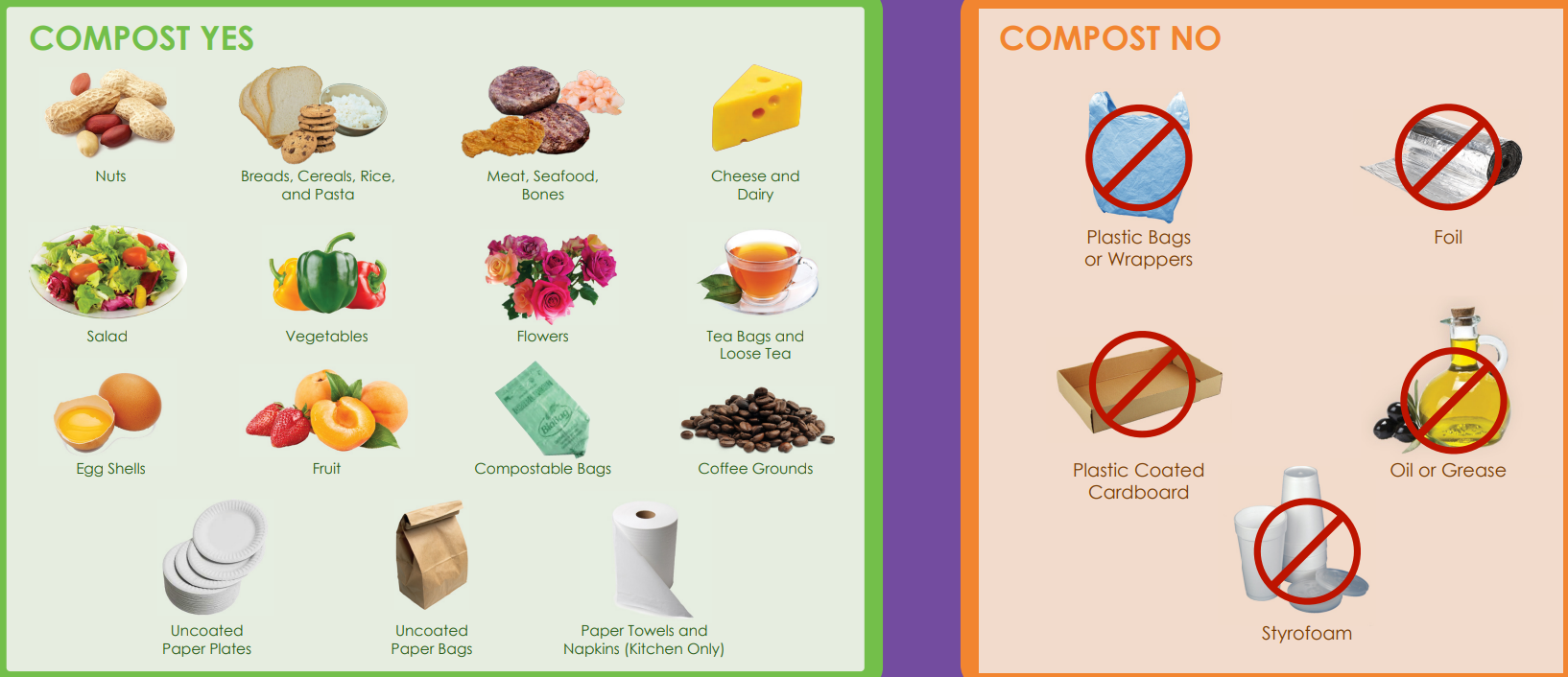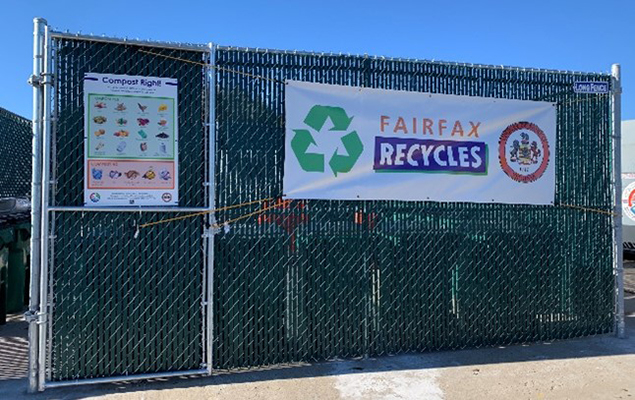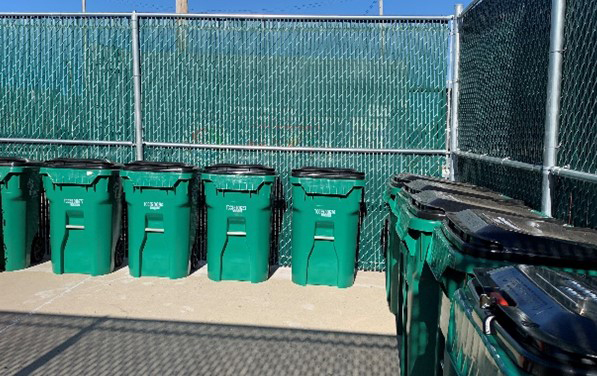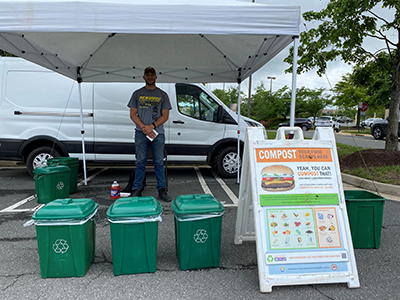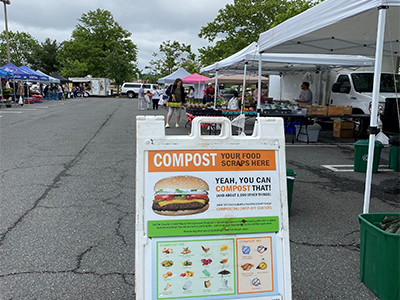Composting Organic Waste
Composting is nature’s way of recycling. It is the controlled breakdown of organic matter such as yard waste, food scraps, and other organic material that produces a nutrient rich soil. In nature, when a leaf falls to the forest floor, it is eaten by a host of creatures. These include worms, insects, and microorganisms such as bacteria and fungi. Common sources of organic waste include eggshells, coffee grounds, fruit and vegetable peels, and yard waste. Even the food left on your plate can be classified as organic waste. Many people turn their organic waste into compost and use it in their gardens.
Composting improves the soil’s porosity and reduces the frequency of watering. Northern Virginia Soil and Water Conservation District and Virginia Cooperative Extension have information you can use to start composting.
Composting Options
Fairfax County residents have several options for managing their organic waste. Whether you decide to compost at home, contract for curbside collection, or drop your compost off at one of our facilities or Farmers Markets, know that you will be doing your part to make the environment a safer, cleaner place for everyone.
Reminder: Please note the differences in what organics are accepted for each system.
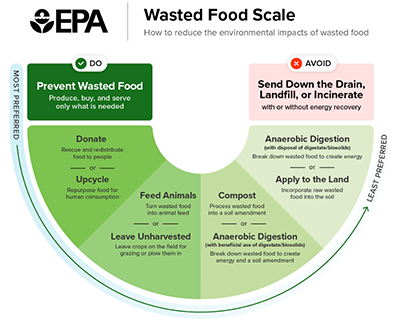 In 2024, the County conducted a waste characterization study and found that 30% of our trash is organics, or food and yard waste. According to the United States Environmental Protection Agency (EPA), one-third of all food in the United States ends up as waste rather than eaten. For more information on the most preferred ways to manage food waste, check out the Wasted Food Scale from the US Environmental Protection Agency.
In 2024, the County conducted a waste characterization study and found that 30% of our trash is organics, or food and yard waste. According to the United States Environmental Protection Agency (EPA), one-third of all food in the United States ends up as waste rather than eaten. For more information on the most preferred ways to manage food waste, check out the Wasted Food Scale from the US Environmental Protection Agency.

